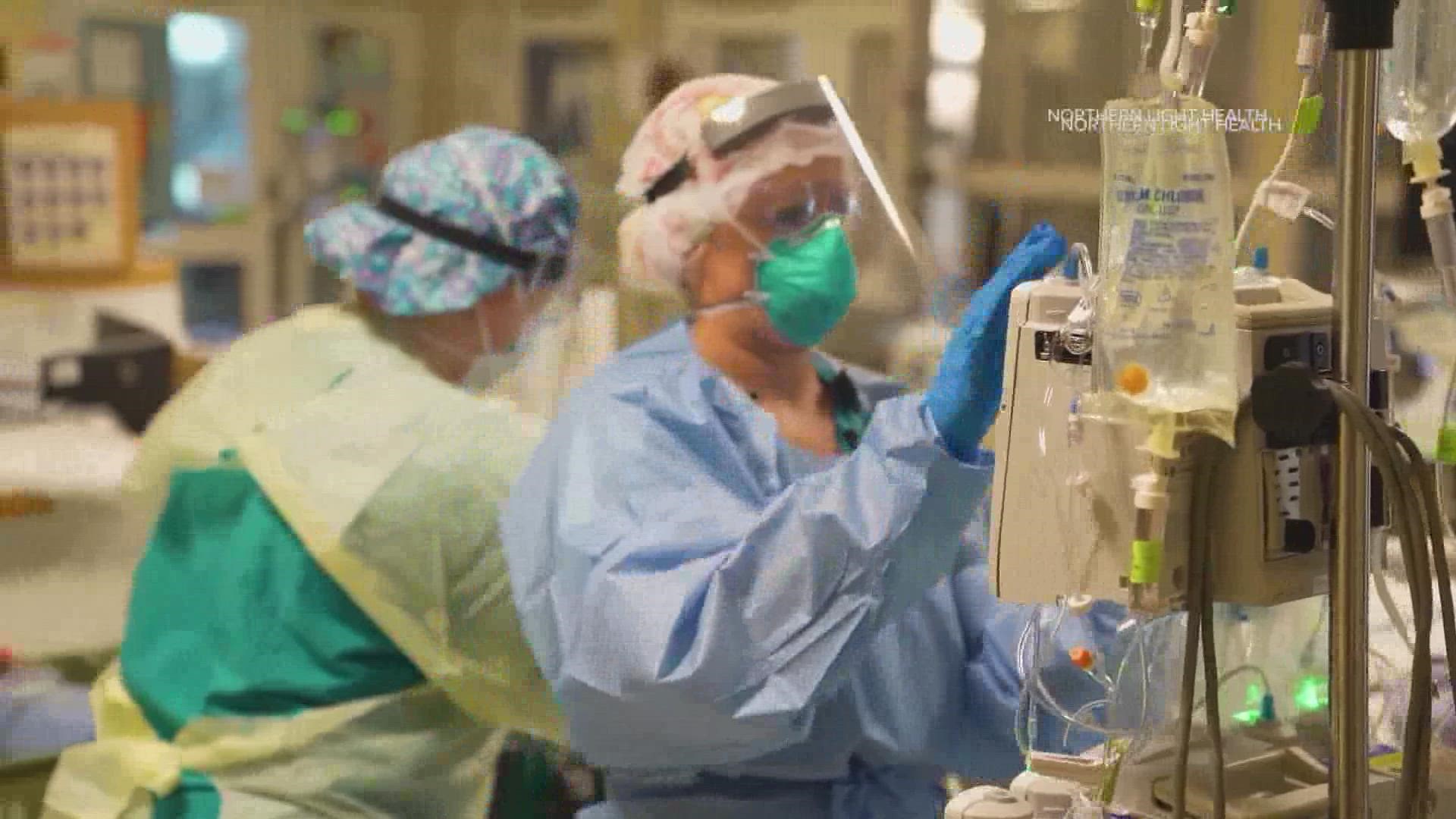AUGUSTA, Maine — During Wednesday's Maine CDC and DHHS COVID-19 briefing, CDC Director Dr. Nirav Shah and DHHS Commissioner Jeanne Lambrew discussed various topics, including the omicron variant.
OMICRON IN MAINE
The Maine Center for Disease Control and Prevention announced the first five cases of people testing positive for the omicron variant on Friday, Dec. 17. Shah said Wednesday that there are likely already more people who have the variant and that omicron's greater contagiousness is concerning.
He worries it will lead to a spike in cases, which could cause more people to end up in the hospital, especially if they are unvaccinated. He said the best way to avoid catching omicron or any strain of COVID-19 is to get vaccinated, mask up in indoor public places, even if you are vaccinated, and keep your distance from others.
FEDERAL HELP FOR STRAINED HOSPITALS
During Northern Light Health's briefing on Wednesday, Dr. James Jarvis said the system is "incredibly strained," and some patients are waiting days or weeks to get care.
"Someone may die because the right bed in the right place at the right time is not available," Jarvis said. "Our first responders are tired. We are sick of seeing people die unnecessarily. There is time to help, but that grows shorter with each new case, each new variant. If you have not gotten vaccinated, please do so. You want us to be here when you need us."
The Federal Emergency Management Agency will send an ambulance and crew to eight different hospitals across the state. Lambrew, the commissioner of the Maine Department of Health and Human Services, said they will help transport patients to less strained hospitals to open up beds for patients at hospitals close to capacity.
She said those crews, in conjunction with activating National Guard troops to help in non-clinical roles at hospitals and with facility waivers for long-term care facilities, could free up more than 150 beds.
"We do anticipate that the current high levels of hospitalization will persist. It could get worse. We continue to cycle through all of our options," Lambrew said.
The majority of patients in hospitals are unvaccinated. 90% of patients in Northern Light Health's ICUs are unvaccinated.
"It is a very precarious situation, and any more stress to the system will make it so that we may not be here when you need us for things like heart attacks, traumas, care for your diabetes, safely delivering a baby in a safe hospital setting, we're just at that situation," Jarvis said.
Jarvis added that people who are sick with COVID-19 are staying in the hospital longer: most patients now stay at least five days, not including the time after they are no longer infected but still have residual medical issues that need treatment.
Jarvis said Northern Light Health has started training non-clinical staff to do low-level clinical work, such as picking up lab specimens for transport, or administering vaccines, which in turn frees up staff with medical education to provide more intensive care.
Both briefings also touched on monoclonal antibodies. Jarvis and Shah said supply is limited, and only one of the currently available antibodies can treat the omicron variant.
PFIZER PILL TO TREAT MILD COVID AT HOME APPROVED
Wednesday afternoon, the U.S. FDA authorized the use of Paxlovid, the first oral pill to treat mild-to-moderate COVID-19, made by Pfizer. Thursday morning, the FDA authorized Merck's pill, molnupiravir.
Shah said Wednesday that there will only be enough patient courses of Pfizer's pill to treat 65,000 people in the entire country. He expects that to increase to 265,000 nationwide by February, but he said it is unclear when Maine would receive any shipments of that pill since distribution is based on population size.
"It's encouraging. It's a welcome addition," Shah said. "I want to temper the enthusiasm: supply will be limited."

